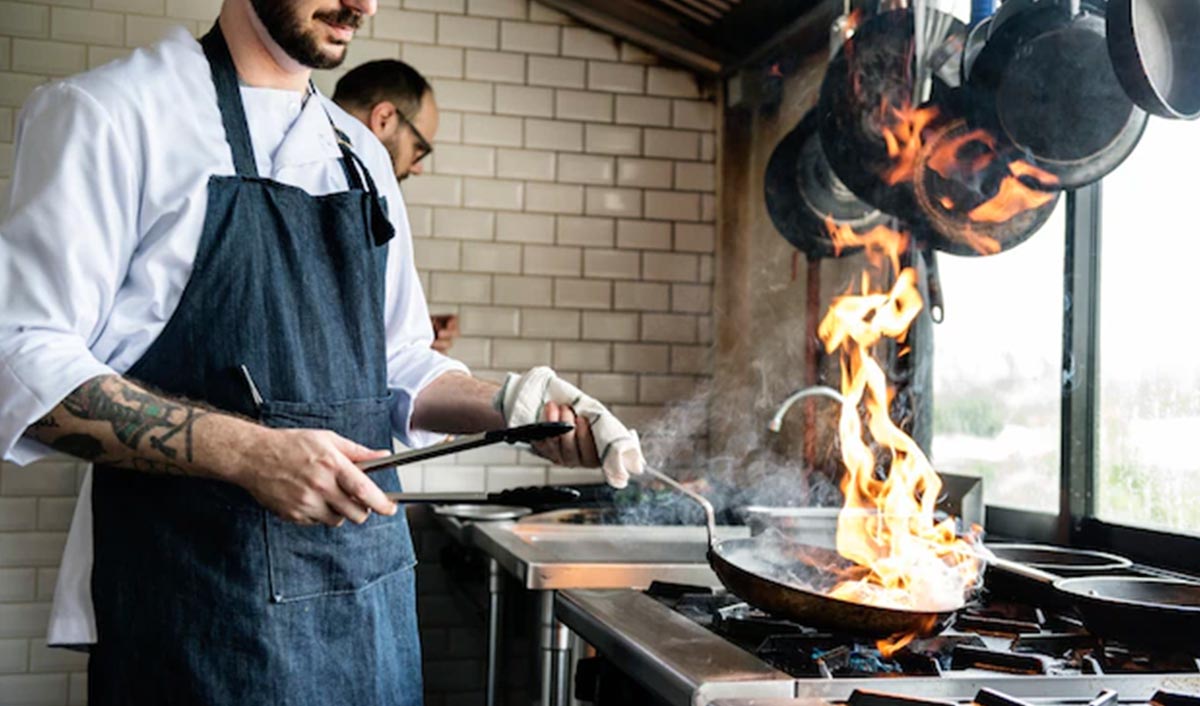
Maybe you’ve got kids. Maybe you’ve got a fur baby. Perhaps you moonlight as an athlete or a creative. Maybe you manage a household or care for an ailing parent. Maybe you hardly get time for a sound sleep. Whatever ‘it’ is, balancing ‘it’ with work never seems to even out. One is always overtaking the other. Work-life balance is not so much about balance at all it’s a negotiation. Especially in the 24/7/365 restaurant industry where it’s typical for chefs to work from open to close, managers to stay until the wee hours, and servers to work split shifts. They do all this while trying to maintain relationships outside the restaurant during what often seems like backwards hours.
According to a study, one-third of participants found that overloaded work and family responsibilities had a high tendency to cause them to lose sleep or dramatically reduce their energy levels. This leads to everything from sick days to slower workers perpetuating the cycle. Not ideal for a job that demands a fast-paced line or hands-on service. What’s more, another study reported that 38 percent of employees have missed life events, like birthdays and anniversaries, because of bad work-life balance.
While there are myriad more statistics that prove work-life balance is necessary, it’s no secret the consequences of a work-work majority are detrimental to any business: burnout, employee dissatisfaction, resentment, high turnover. The good news is that managers’ mentality seems to be changing. Decision makers are starting to recognise and write about finding a healthy work-life balance in business management books. Balancing personal life with work achieves better results for employers, and an unhealthy balance, well, drastically reduces their effectiveness.
Creating a clear restaurant culture
Maintaining a work life balance in the restaurant industry is no easy task. As a restaurant owner, you’re often focused on the logistics of operating a business food costing, customer service, innovative and new approaches to dining. The last thing on your mind is how everyone in the kitchen is feeling. Yet, the health and stability of your staff can’t be understated. A happy healthy kitchen will help your restaurant become more successful. Here’s how to avoid burnout for yourself and amongst your staff.
According to Arvin Tucker, owner of Chufang Asian Kitchen and Bar, restaurant industry can be very demanding at times, and employees have had to work extra hours due to guests arriving late and leaving late. They must also be capable of multitasking because they are frequently required to perform a variety of tasks.
“Maintaining a personal and professional life is something that everyone has to go through because every industry has some sort of challenge. We also manage to do so in the restaurant industry. Our employees are given a schedule and, for the most part, follow it. We make certain that no one is overburdened in our restaurant,” he shared by adding that he believes in creating a positive environment for his employees in which they have equal time to spend with their families aside from their duties.
Learn how to delegate
One of the most important words for maintaining work life balance in the restaurant industry is Delegation. You’re only one person and the fact of the matter is, you can’t do it all yourself! It’s vital to the success of your business to learn when to hand off tasks to free up your time. Management and leadership should do the same.
The ability to delegate tasks when a manager is away or an issue arises will save you from certain disaster. There are many tasks to juggle in a restaurant. The pressure for perfection that drives food service also promotes a “do it yourself” attitude. There’s no better way to burn out than to think you’re the only person who can do it all.
In fact, an experiment conducted by the U.S. National Library of Medicine National Institutes of Health found, delegation is closely related to empowerment. People experience psychological empowerment when they feel responsible for meaningful tasks. They also feel empowered when they believe they are competent and make a difference.
“If you want to promote leadership in the kitchen, give your staff MORE responsibility. Let them take on new tasks and help shoulder the workload. That’s how we work,” Devansh Singh, owner of Vairaagi Cafe in Lucknow commented.
Set goals and celebrate success
Chef Gaurav Gupta who hails from Himachal Pradesh, decided to quit his high paying job in one of the five star hotels in Mumbai when he realised that his efforts were left unheard. Refraining to name the hotel, he shared, “We all know it’s a demanding job. Especially as an executive chef I hardly used to get chance to travel back to my family and celebrate small little joys with them. Above all, the management always had complaints and rather than acknowledging my effort, I used to feel humiliated all the time. There was a time when I couldn’t take it anymore,” he added as he happily run his own cafe in Dehradun now.
When we set goals, we see successes and wins. Those successes should be celebrated and promoted to help build your team morale and form even stronger bonds
Sadly, restaurant workers in India are quitting at a historically high rates. Nearly seven percent of the restaurant and hotel workforce quit in November last year, generating around five lacs at least temporary job vacancies that month alone.
Copyright © 2009 - 2024 Restaurant India.









